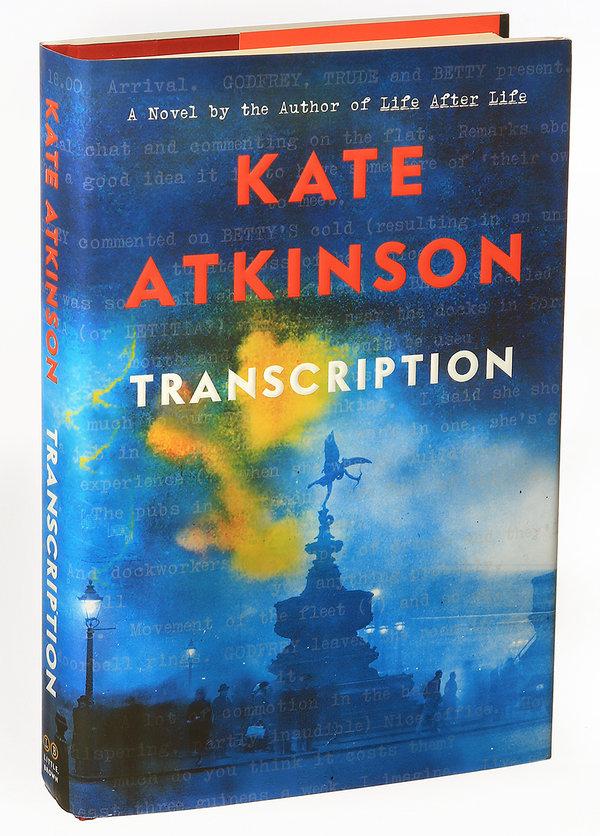It is almost impossible to write a proper review of Kate Atkinson’s Transcription without spoiling it. (Yes, it’s one of THOSE books.) (I’m sorry.)
But it’s also impossible NOT to talk about it, because Transcription is, deservedly, one of the Big Books of Fall. Also, I want people to read it and then visit me at the reference desk to discuss, so I will try very hard not to give away the twists. Plural. (Sorry again.)

If you’ve read Kate Atkinson, brilliant author of Life After Life, A God In Ruins, Case Histories, and others, you will be unsurprised to hear that Transcription is basically a literary spy thriller, which is to say: there are no car chases or people dangling from mountains or montages set in spy training school. But there’s tension a-plenty, murky motives, secrets galore, and a lot of questions about truth, identity, and what it means to fight for a country – or the idea of one. It’s also got the impeccable prose, dry humor, time-jumping structure, and carefully drawn characters you’ve come to expect from this author.

A brief summary: In 1940, eighteen-year-old Juliet is recruited by MI-5 to transcribe the bugged meetings of a group of Nazi sympathizers. And in 1950, an older, wiser, more bitter Juliet is working as a producer at the BBC, having left the spy life behind. But has the spy life left her?
The novel flips back and forth between the two timelines, each informing the other. As Juliet’s stories progress, it becomes clear that very few things in her world, particularly her wartime one, are what they appear to be. It’s fitting, after all: transcriptions are copies of conversations, poor imitations of the things themselves. It’s the difference between reading Hamlet and seeing it. Nuances are lost; meaning is altered. Even Juliet’s memories are transcriptions of a sort, and you’re left to question how accurate they truly are.
Juliet herself is an engaging character – during the war, despite the traumas she endures, she’s is young, hopeful and naïve (sometimes forehead-smackingly so). As we watch her transform into 1950’s Juliet, colder and jaded, it becomes clear that there are twin mysteries afoot: Who (if anyone) is after Juliet, and why? And What happened to change her so radically?
It should come as no surprise that the answers are intricately layered and surprising. The official story, the story Juliet tells the reader, the one she tells herself….they’re all a version of what happened, a specific reading of the truth – and in the end, Transcription challenges the reader to decide what the real story is, or if it’s even possible to find out. If you’re looking for a thoughtful wartime spy mystery, check it out. (And then come talk to me!)
Discover more from Cook Memorial Public Library District
Subscribe to get the latest posts sent to your email.
Categories: Books and More
